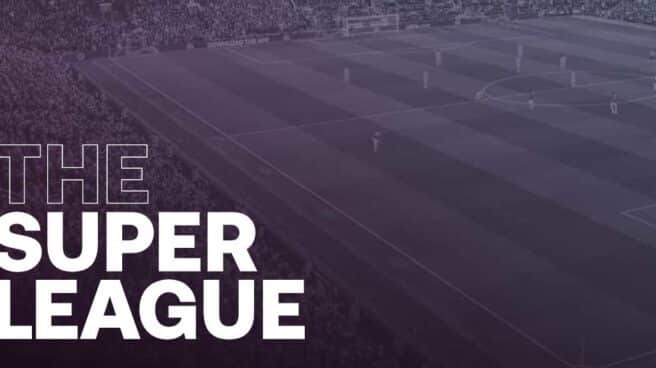

Super League logo
A historic day in European football. The European Justice opened the doors to the Florentino Pérez Super League, which presented “a modern project, fully compatible with national competitions, open to all, based on sporting merit and which effectively instills respect for fair financial”.
Proposal submitted Super League at the press conference consists of a competition involving 64 clubs, divided into three leagues: the Star League (top category) and the Golden League (second category), each with 16 clubs, and the Blue League (third category) made up of 32 clubs . That is, the model will be comparable to the current level of European football with the Champions League (highest category), Europa League (second category) and Conference League (third category).
Participants will be divided into groups of eight and will play a minimum of 14 games per season: seven at home and seven away. At the end of the group stage, there will be a direct elimination match involving 8 clubs in each category, during which the champions of each league will be determined. One of the most important aspects is that the Super League has announced that there will be annual promotions and relegations between the three leagues, but not only that, promotion to the Blue League will be dependent on results in the domestic leagues.
The new project will also include a women’s section of 32 clubs, which will be divided into two divisions: the Star League and the Golden League. Each category will be divided into two groups of eight, with round-trip matches and a guaranteed minimum of 14 matches per club per year.
Among the main differences between the Super League and the new Champions League format Next season there will be 64 clubs participating rather than 72, that the minimum number of games played per team will be 14 rather than 8 and that it will be governed by the clubs rather than UEFA. There will be 19 affected weeks in the calendar, the same as in the new Champions League.
“Our goal is clear: to work with clubs and other stakeholders to create the best competition that fans love in Europe and around the world. At the same time, we must create a more sustainable football ecosystem that includes both men’s and women’s football to unlock the full potential of European club football,” said Bernd Reichard, CEO of A22, the agency responsible for the Super League.
Source: El Independiente